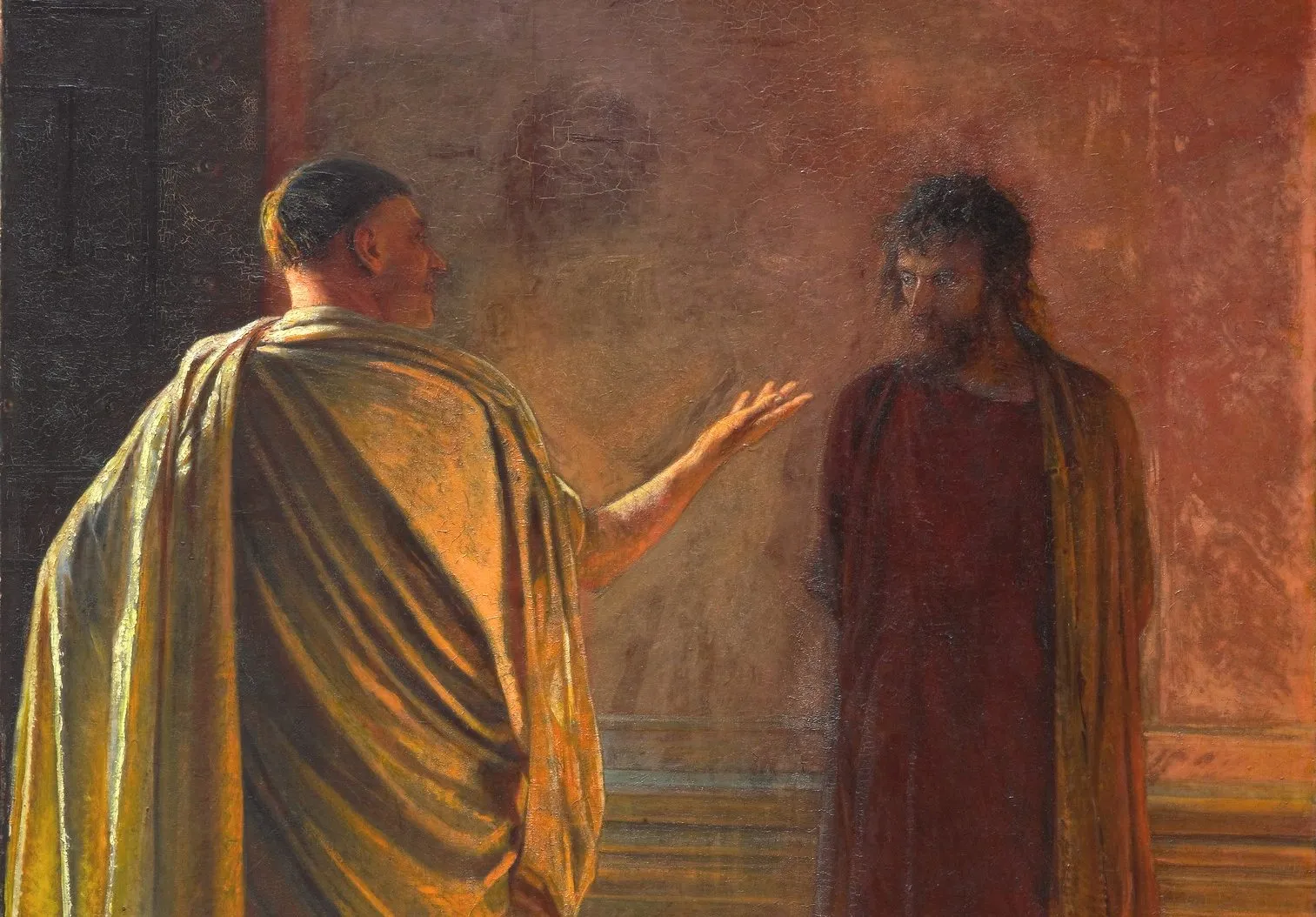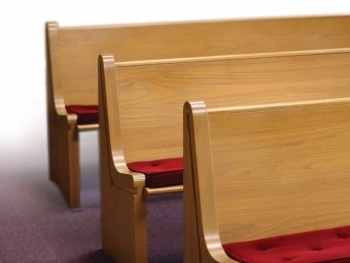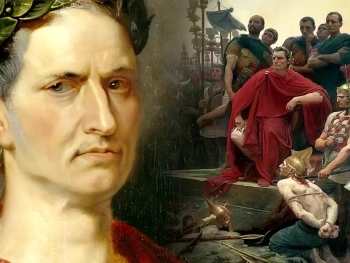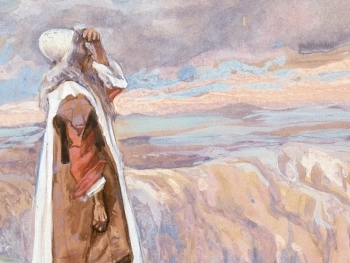The figure of Pontius Pilate stands at the intersection of biblical history and political intrigue, symbolizing the delicate balance and complex dynamics of governing a region as politically charged as ancient Judea. Pilate's role in the trial and crucifixion of Jesus Christ, as narrated in the New Testament, sheds light on the intricate political landscape of the time. This article explores Pilate's politics, examining the challenges he faced and the decisions that shaped a pivotal moment in biblical history.
Historical and Political Context:
Pontius Pilate served as the Roman prefect of Judea from approximately 26 to 36 AD, during the reign of Emperor Tiberius. His appointment marked a period of Roman imperial governance over a region characterized by religious diversity, cultural complexity, and simmering tensions between the Jewish population and their Roman rulers.
Pilate's Arrival in Judea:
Upon arriving in Judea, Pilate faced the challenge of navigating a politically and ethnically diverse population. His predecessor, Valerius Gratus, had left behind a legacy of strained relations with the Jewish religious leaders. Pilate's task was to maintain order and Roman authority in the face of mounting tensions.
Cultural Sensitivities and Religious Practices:
Judea was a land steeped in religious fervor, with a significant Jewish population practicing a faith that held deep historical and cultural significance. Pilate had to negotiate the delicate balance between Roman authority and respect for the religious practices of the Jewish people. His initial missteps, such as introducing Roman standards with imperial symbols into Jerusalem, triggered protests and raised tensions.
The Trial of Jesus:
Pilate's role in the trial of Jesus exemplifies the political tightrope he walked. The Jewish religious authorities presented Jesus as a threat to Roman rule, accusing Him of claiming kingship. Pilate, aware of the potential volatility of the situation, questioned Jesus but found no grounds for a Roman charge. Attempting to appease the crowd, Pilate suggested the release of a prisoner during the Passover festival. The crowd, influenced by the religious leaders, called for the release of Barabbas instead of Jesus.
Washing His Hands:
The symbolic act of Pilate washing his hands before the crowd, as recounted in Matthew 27:24, illustrates the political maneuvering he employed. While asserting his innocence in Jesus' condemnation, Pilate sought to shift responsibility onto the Jewish leaders and the crowd. This act, however, did little to absolve him of the historical and theological implications tied to the crucifixion of Jesus.
Political Pragmatism and the Execution of Jesus:
Pilate's decision to crucify Jesus was rooted in political pragmatism. Faced with the potential for unrest and fearing a report to Emperor Tiberius about his inability to maintain order, Pilate acquiesced to the demands of the crowd and the religious authorities. The crucifixion of Jesus, a common form of Roman execution, served Pilate's immediate goal of quelling unrest but left an indelible mark on history.
Reflections on Pilate's Politics:
- Balancing Act: Pilate's tenure in Judea exemplifies the precarious balance required in governing a culturally diverse and religiously sensitive region. His attempts to assert Roman authority while respecting Jewish practices underscore the challenges inherent in imperial rule.
- Political Expediency: Pilate's decisions during the trial of Jesus reflect the political expediency of the time. Faced with potential unrest and the need to maintain order, Pilate prioritized pragmatic decisions over considerations of justice or moral implications.
- Historical and Theological Legacy: Pilate's role in the crucifixion of Jesus has left a lasting historical and theological legacy. While he may have sought to navigate political challenges, his decisions became intertwined with the central narrative of Christianity, shaping perceptions of authority, responsibility, and divine providence.
Contemporary Reflections:
- Ethical Governance: Pilate's story prompts contemporary reflections on the ethical responsibilities of those in positions of power. Leaders face the challenge of balancing political expediency with moral considerations and the well-being of diverse populations.
- Religious Freedom and Cultural Sensitivity: The complexities of Pilate's governance highlight the importance of respecting religious freedom and cultural sensitivity in modern governance. Acknowledging and navigating diverse belief systems can contribute to social harmony and understanding.
Pontius Pilate's politics in ancient Judea encapsulate the intricate dance of power, cultural sensitivity, and political pragmatism. His decisions, particularly in the trial and crucifixion of Jesus, reverberate through history, carrying profound theological and ethical implications. Pilate's governance serves as a cautionary tale, prompting contemporary reflections on the responsibilities of leaders in navigating the complexities of diverse societies. The political tightrope Pilate walked continues to echo through time, inviting contemplation on the delicate balance required in the exercise of authority.




